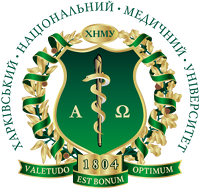Please use this identifier to cite or link to this item:
http://repo.knmu.edu.ua/handle/123456789/11235| Title: | Ethical And Legal Issues Of Patients Death In Finland |
| Authors: | Hassan, Khalid Deeq Honchar, Oleksii Гончарь, Алексей Владимирович Гончарь, Олексій Володимирович Ashcheulova, Tetyana Ащеулова, Татьяна Вадимовна Ащеулова, Тетяна Вадимівна |
| Issue Date: | Mar-2015 |
| Citation: | Hassan K. D. Ethical And Legal Issues Of Patients Death In Finland / K. D. Hassan, O. Honchar // Implementation of biethics principles in clinical practice : IV International scientific students`conference, dedicated to the 210th anniversary of KhNMU, 31 of March 2015 : abstract book. – Kharkiv : KhNMU, 2015. – P. 32–34. |
| Abstract: | Hospice care means relieving the symptoms of a terminally ill patient and providing support and a sense of safety to the patient and his/her family at the end of life. Palliative care means symptomatic treatment of a patient with an incurable, progressive disease. Assisted suicide is not a crime in Finland. Assisted suicide is connected to end-of-life care when the patient takes the deadly dose of medicine himself/herself. Placing the dose of medicine within the patient's reach at the patient’s request when he/she has decided to end his/her life, is considered assisted suicide. Palliative sedation means putting the patient in a sleep-like state when his/her suffering is unbearable and when it cannot be relieved by any other existing means. In palliative sedation, a drug is used to lower the patient's level of consciousness to the degree that he/she can no longer feel the suffering associated with his/her approaching death. Allow natural death (AND) means rejecting measures which in the presence of the patient’s imminent death would be directed at pathological changes in the patient’s body and which in actuality would be useless. These include giving fluids and nutrients or blood products to the dying patient. Do not resuscitate (DNR) is a restricted medical decision made by a physician. It prohibits the restoration of heart function. It is applied in a situation where restoring heart function is considered to be more harmful than beneficial to the patient. A person can express the DNR in his/her living will. The abbreviation DNR does not mean that hospice care will be initiated. A living will is an expression of the patient’s will concerning the decision on his/her care, given orally in the treatment situation and recorded in the patient records. A living will can also be submitted in writing. In this way, patients can influence their care even in situations in which they are no longer capable of expressing their will. Euthanasia means an intentional, active measure to end the patient’s life when he/she requests it repeatedly and deliberately because of an incurable disease and unbearable suffering. Before euthanasia performed, all other possibilities to alleviate the patient’s suffering have been considered and utilized. In countries where euthanasia is permissible, it is performed by a physician who has consulted another, independent physician and a psychiatrist, as needed. In such cases, the requests for euthanasia, decision- making concerning it and its implementation must be recorded in detail. The drug ad- ministered in active euthanasia produces instant death. Reflections on euthanasia in Finland The Act on the Status and Rights of Patients (785/1992, later the Patient Safety Act (1027/2007)) gives patients in Finland the right to refuse treatment that has been planned or already started. The patient’s right of self-determination is at its strongest in regard to refusing treatment. The Act does not afford the patient an opportunity to demand a certain treatment or examination. Hence, the patient cannot demand the im- plementation of euthanasia. Previously euthanasia was associated, before anything else, with the thought of safely ending the suffering of a fellow human being through medical assistance. Along with social change, the wish to self-determination and control has been increasingly associated with the wish to decide on one’s own death. Euthanasia is being implemented in three European countries (the Netherlands, Belgium and Luxemburg), and a debate concerning euthanasia legislation has been carried out in several countries. In Finland, the Parliament's Committee for the Future stated that the tendency is toward a wider acceptance of euthanasia. According to the Committee, Finland would follow suit in 10-15 years. The matter was touched upon earlier when the Criminal Code was reformed in the 1960s and 1990s. However, the intent was to leave patient care in different situations to good medical practice. If a physician were to end the life of a terminally ill, suffering patient out of pity on the basis of the patient’s request following resolute consideration, the deed would most apparently fulfil the essential elements of a homicide. According to the surveys conducted among Finnish physicians in 1993 and 2003, attitudes toward euthanasia were negative. In 2007, 19 percent of Finnish general practi- tioners, specialists in internal medicine and geriatric specialists (N = 661, 32 % re- sponse rate) supported the legalization of euthanasia and 17 percent were prepared to perform euthanasia if it were legal. Ninety-six percent of the respondents of the same study said that good palliative care would reduce the need for euthanasia. Only five percent said that palliative care training for physicians was on a satisfactory level. However, the low response rate to the study limits the interpretation of the results. he two most important ethical obligations of a physician are doing good and not doing harm. Physicians have the obligation to see to it that the patient does not suffer unnecessarily, to protect the patient from disadvantageous effects in treatment situations, and to offer sufficient information to support the patient’s decision-making. Physicians must not conduct examinations and provide treatments that are considered to be useless or harmful to the patient. According to good medical practice, symptoms must be alleviated in the final stage of life, even though the methods used to alleviate hem might shorten the patient’s life. The doctor must respect the patient’s right to self determination and treat the patient in agreement with him or her. |
| URI: | https://repo.knmu.edu.ua/handle/123456789/11235 |
| Appears in Collections: | Наукові роботи молодих вчених. Кафедра пропедевтики внутрішньої медицини № 1, основ біоетики та біобезпеки |
Files in This Item:
| File | Description | Size | Format | |
|---|---|---|---|---|
| Khalid Deeq Hassan _gr7_32-34.doc | 29 kB | Microsoft Word | View/Open |
Items in DSpace are protected by copyright, with all rights reserved, unless otherwise indicated.

